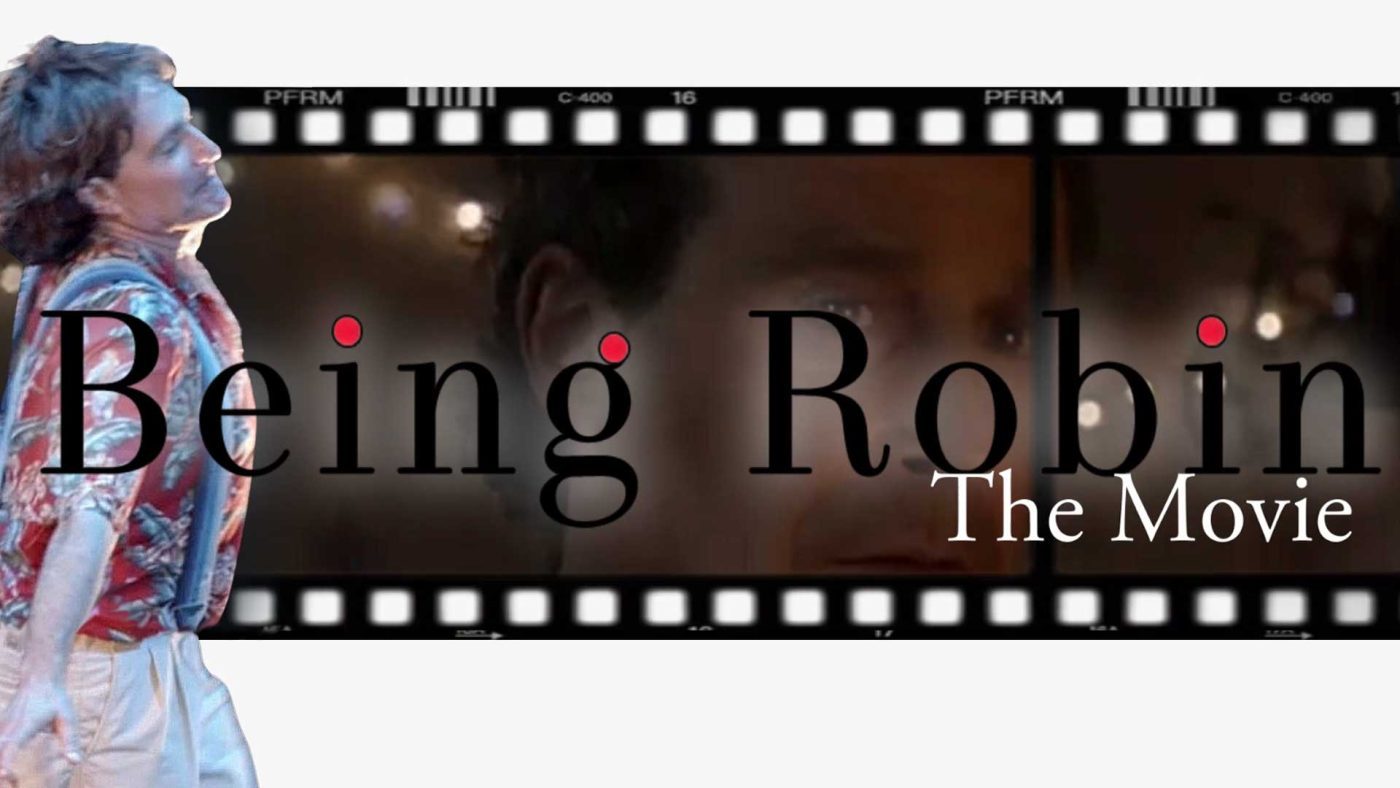“Being Robin” Movie Reviews
What people are saying about Being Robin the movie.


Being Robin: A Review by Peter Keough of The Arts Fuse – “Comic Genius”
The documentary genre continues to grow into the most prolific and significant in cinema. Being Robin is a non-fiction film that has been recently released and is worth a look.
Comic relief.
After Robin Williams died of suicide in 2014 the spirit of the beloved, manic comic inhabited (for a time) the body of Roger Kabler. Or perhaps, as the psychiatrist who had been treating Kabler for bipolar disorder tells him, he is suffering from the same kind of delusions as patients who claim to be Einstein or Napoleon.
Except those patients are not likely to conjure up a theory of relativity or conquer Europe.
As chronicled in Being Robin, Kabler’s film about this transformation, when the spirit moves him his impersonations of Williams are uncanny, unnerving, hilarious, and moving. He’s not always funny, but neither was Williams. It’s a giddy, unstoppable outpouring of free association, scatology, neediness, mawkishness, and comic genius.
The exigencies of production and perhaps a desire to mirror William’s antic imagination contribute to the film’s rough-around-the-edges, kaleidoscopic form. Footage of Kabler as Williams in performance is interwoven with reenactments of his attempts to comprehend and come to terms with whatever is happening to him. He is beset with an influx of gleeful nonsense and savvy satire that will not let him rest. Being Robin was a burden for Williams himself, and it is a relief for Kabler — and perhaps the viewer too — when it is finally lifted from him.
Being Robin is available here.
Read the original review by Peter Keough here: https://artsfuse.org/264063/doc-talk-five-new-non-fiction-films-worth-a-look/

“I just watched Being Robin. It’s a remarkable film, and not anything that I expected. It’s, above all else, courageous. You explore something so personal – but the story is as compelling as any Hollywood picture. It also demonstrates your amazing acting skills. I know you are reenacting true episodes of your life, but doesn’t make the performance any less spectacular. It never rings false. It never feels written. It feels experienced, and as an audience member I am experiencing too. Sometimes it made me very uncomfortable, but you are skillfully (artfully) sharing your story and the dark side is part of that. I liked — or am relieved — how it ended…. a sensational work of theatre”.

There are so many overused words and phrases I could steal from the columns of mainline critics to describe the film — a standout, a gripping performance, makes you wonder if you’re watching watching an impersonator or the real McCoy, a tour de force. You get the idea. But perhaps the best way to describe Being Robin and my relationship with it can be summed up in one word – complex. The theme, storyline, and performances by Roger and the ensemble cast challenged me in so many ways. At one moment I sat as the cynic, discounting a scene that was so powerful I wondered if it was trying too hard to convince me to believe. But then I watched as one converted – willing to testify to anyone who would listen that Roger was indeed possessed by the spirit of Robin. A few minutes later I thought Roger was severely mentally ill and needed to be institutionalized for his own well being as well as the safety of the general public. I laughed, then cried. And when it was over I was drained, having been emotionally whiplashed in just a little over an hour. I dont know the last time I watched something that filled me with such wonder and still, days later, left me blissfully confused and wanting to delve more into the film’s subject matter and Roger’s uncanny ability to keep me engaged at every turn. Like I said — complex. Do you think I liked it?

Last evening I watched “Being Robin”, comedian and actor Roger Kabler’s fascinating, novel, quirky, funny, heartbreaking and thought-provoking film about Robin Williams taking possession of Roger’s mind and body. This isn’t a horror flick, not at all, no heads turn 360 degrees on necks and no one projectile vomits green bile. This is instead a, mostly, truthful tale of a man, Kabler, who believes that Williams has taken hold of him, is living through him, is using him as a vessel to spread his message of how we’re to live in this world, how we must live. Everything about this quasi documentary (Kabler refers to it as a sort of hybrid, like a TV crime story with real and fictional characters, some scenes re-enactments of actual events) is intriguing, from the often frenetic camera-work (how could it not be with Williams as the protagonist) transposed with calming, often bittersweet scenes, many of them of Kabler, as Kabler, canoeing on a peaceful lake near his home. Viewers may, and probably will, come away from this provocative and ultimately uplifting film with questions that no one, not even Kabler can answer: did Williams really take over his body? Can that really happen? Or did Kabler, who has been diagnosed with bi-polar disease, suffer a manic hyperactive phase that lasted for two years, the length of time he says that Williams lived through him? Ultimately it doesn’t matter what the answers are. This film is about the power of love and how it can transform one life and all lives. It’s a film well worth watching, more than once.


